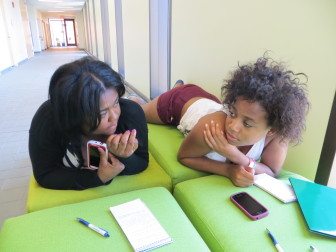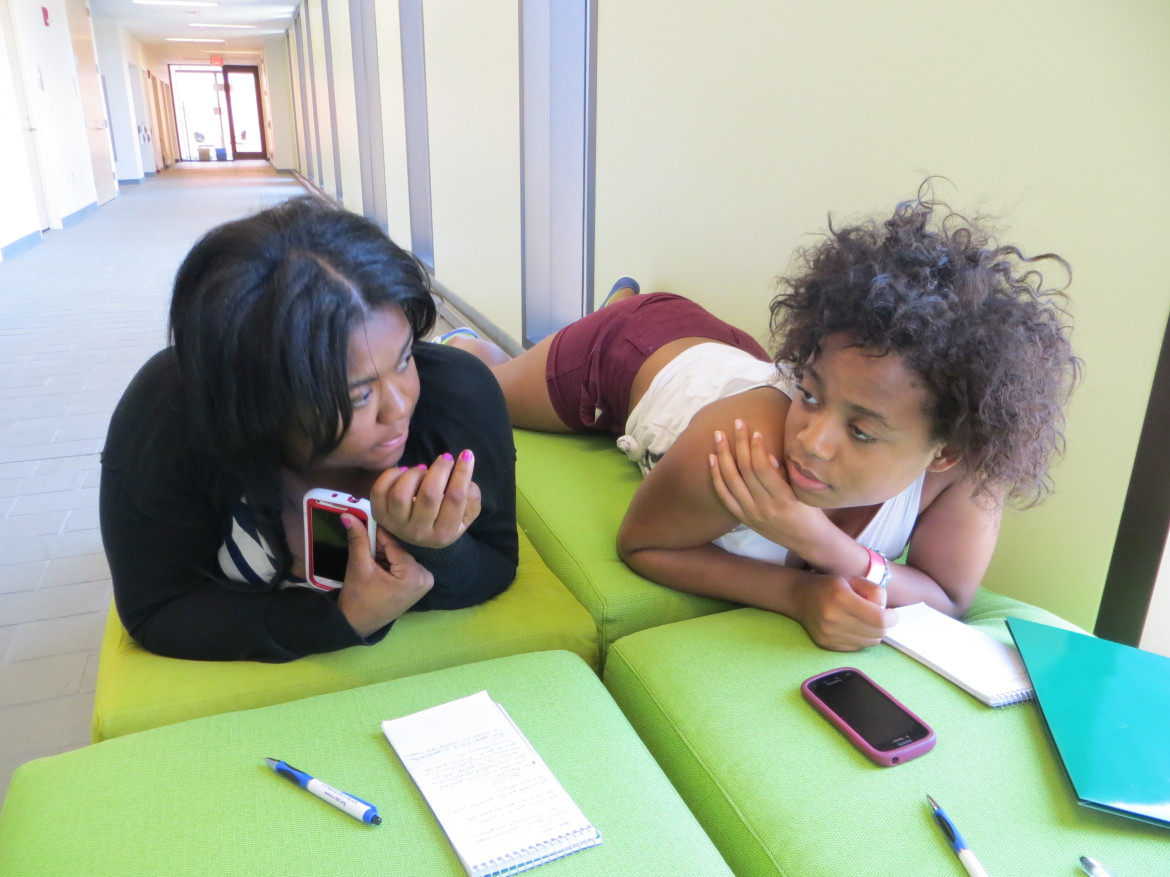In Connecticut, 50.9 percent of teens interviewed admitted to texting and/or emailing while driving, according to the 2011 school health survey.
And about 53 percent of teen drivers admitted to talking on their cell phones while driving, the survey conducted by the state Department of Public Health showed.

Shamoya Hason and Keylee Scott collaborate.
Connecticut’s numbers are above the national average, according to data compiled by the U.S. Centers for Disease Control and Prevention. The CDC reported that just under 45 percent of teens nationally admitted to texting while driving and 46 percent said that they talked on their cell phones while operating a motor vehicle.
Connecticut law prohibits drivers from talking or texting on handheld cell phones while operating a motor vehicle.
A University of Connecticut student, who identified himself as Chris, admitted to talking on his cellphone while driving, but never texting. But, Chris said that he has seen lots of teenagers texting while driving. “It’s a little too much,’’ he added.
On the law, Chris says that he thinks that it’s okay to talk on a cellphone while driving, but thinks that texting should remain outlawed because “it’s too much of a distraction.’’
State health officials expressed concerned about the risky behavior involving teens and driving. They noted that motor vehicle crashes are the leading cause of death for U.S. teens. The risk of motor vehicle crashes is higher among drivers ages 16–19 than among drivers of other ages, state officials noted. Per mile driven, drivers in this age group are four times more likely to crash than older drivers.
The survey also showed that one out of four students reported being a passenger in a car with a teen who had been drinking alcohol, and about one out of every 10 high school seniors reported drinking alcohol and driving in the past the month.
“The reality is kids aren’t drinking seven days per week, they are carrying phones and texting seven days per week, so you intuitively know this a more common occurrence, “ Dr. Andrew Adesman, chief developmental and behavioral Pediatrics, Cohen Children’s Medical Center of New York.
“It’s the twenty-first century and 78 percent of teens have cell phone, and now it is 47 percent of those teens have smartphones. Around the ages 14-17, 34 percent of teen girls and 24 percent of teen boys us the Internet on their cell phones, according to a study by the Berkman Center at Harvard University.
“Almost 90 percent of drivers reported engaging in at least one technology-based distraction while driving their child in the past month, and most drivers reported engaging in four of the 10 distractions asked about in the study,” reported by EurekAlert! a Washington D.C. information website.
Courtney Leopold, 17, of New Canaan, said, “I’ve never talked on the phone or texted while driving,’’ but she admitted to stopping at a stop light and texting.
Courtney said she had a friend who was texting while driving while she was in the car. He asked, “Do you mind if I do this.’’ She responded, “You should not be texting and driving.’’
On the state law, Robin, who works in the library at UConn, said, “I think the law is not strict enough. People should really not be texting nor talking on the phone while driving.’’
Keylee Scott and Shamoya Hanson are students at the Hartford Journalism And Media Academy.
